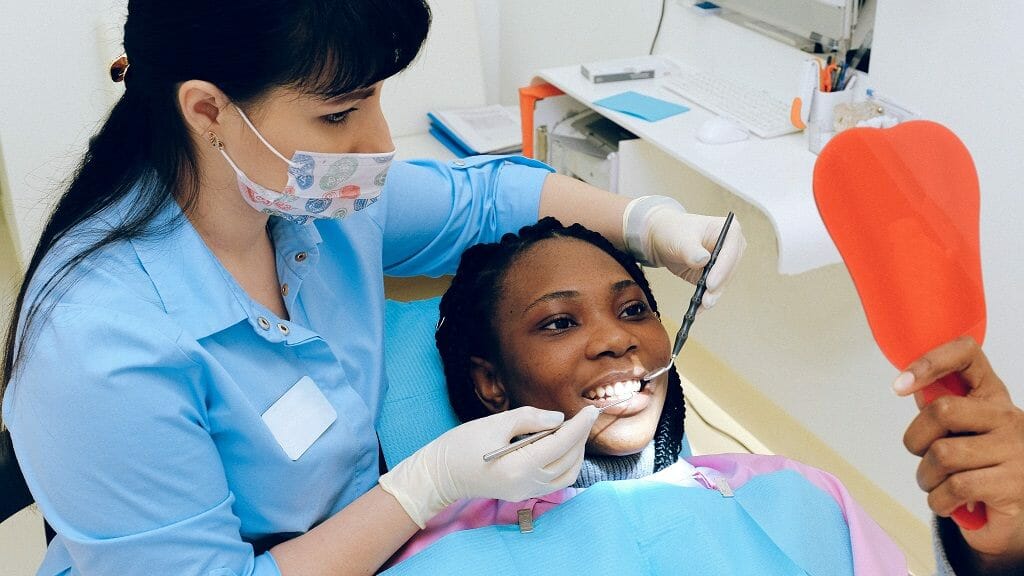Weighing Up Caribbean Medical Universities: Benefits and Potential Pitfalls


As the global demand for healthcare professionals soars, an exotic destination is gaining notable popularity amongst aspiring MD applicants – the Caribbean.
Sun, Sea, & Studying Medicine - This phrase captures the unique Caribbean Med School experience, which harmoniously combines the tranquillity of nature with a single-minded focus on one's medical education.
And, as with any new contender, it is natural that uncertainties and doubts arise. Below, we have weighed the positives and the potential drawbacks associated with pursuing medical education in the Caribbean:
The 5 Main Advantages of Studying Medicine in the Caribbean
First, let’s explore why the med schools in the region have become an increasingly popular destination that attracts a diverse pool of international students each year.
The Caribbean region as a whole is going through a period of growth and development thanks to the efforts of local governments and international organisations such as the Caribbean Community and the Commonwealth of Nations. This has resulted not only in the establishment of many notable and prestigious medical universities but also in the overall improvement of healthcare standards.
Here are the main benefits that students can look forward to while studying in the Caribbean:
1. Internationally Recognized Medical Degrees
The reputable Caribbean medical schools have all shared in their respective nation’s ambitions to strive for development and excellence and have become accredited by their respective local government and the Ministry of Education.
This commitment to quality and continuous improvement has earned them global recognition, further solidifying their position as leading medical education providers. Upon graduation, students receive an internationally recognised medical degree that allows them to become successful doctors in many countries around the world, including the UK, the US, India, and many more.
2. Paradise-Like Tropical Island Atmosphere
It goes without saying that being surrounded by pristine beaches in the warm Caribbean climate sounds like an ideal destination, and not just for medical education. This idealistic tropical island atmosphere offers a rejuvenating escape from the busy world, making sure that students get a relaxed and fulfilling academic experience.
3. Accessible Admission Requirements
Most Caribbean med schools offer 4-year graduate entry courses for medicine, for which the main requirement is to hold a related Bachelor’s Degree.
However, even if students don’t fulfil these requirements, they can still study medicine in the Caribbean by signing up for a pre-medicine foundation course. The Pre-Med Programme will help them lay the foundation for their respective medical studies. A notable perk is that it is possible to go through the pre-med course completely online.
4. Rolling admissions
Caribbean medical schools exhibit immense flexibility, thanks to their rolling admissions policy, accepting applications throughout the year. They operate on a trimester system, permitting new students to enrol in:
- January
- May
- September
The process of applying usually lasts between 4 to 6 weeks, so it's essential to apply early. Remember that there are only a few spots available, and those who apply early often have a better shot at getting accepted.
5. State-of-the-art medical facilities and modern classrooms
Many of the Caribbean medical universities have been investing in modern infrastructure and cutting-edge technology to ensure an outstanding teaching environment.
The University of Health Sciences School of Medicine in Antigua & Barbuda is a perfect example of this, as it has invested in advanced teaching equipment, sophisticated simulation centres, modern classrooms and much more.
Common Myths about Studying Medicine in the Caribbean
Some critics may claim that there are several pitfalls of Caribbean universities, but they often fail to look at the big picture:
Myth 1: Caribbean schools are all about the money
While the cost of studying medicine at a Caribbean university parallels those in the US or Western Europe, it's an oversimplification to suggest that all these schools are solely profit-driven, overcrowding lecture halls with students.
A considerable number of Caribbean Medical Universities have embraced a 'boutique' educational approach, favouring smaller class sizes. This structure fosters a more personalised educational experience, enabling faculty members to give individual attention to each student. Consequently, students can have direct, one-on-one discussions with faculty members, facilitating a better understanding of the subject matter.
Myth 2: Caribbean med schools are too expensive, and you need to go into debt to study there
While some Caribbean medical schools may be expensive, there are ways to pursue a Medical Degree in the Caribbean without breaking the bank.
We have partnered up with a few accredited Caribbean Med Universities and are now able to offer an exclusive Medlink Students scholarship to eligible students. This merit-based scholarship associated with student’s previous academic performance could reduce their tuition fees by half.
If you want to check whether you qualify, sign up for a free consultation with one of our expert advisors to get an evaluation and find out how big of a scholarship you can earn.
Myth 3: Clinical rotations in the U.S.
A common misconception is that Caribbean medical schools don’t offer clinical rotations in the US.
In truth, numerous Caribbean medical universities have cultivated a robust network of international partners. This network grants students an extensive array of options to undertake their clinical rotations in accredited hospitals worldwide, including those in the USA.
For example students at the University of Health Sciences Antigua (UHSA) can complete their clinical rotations at affiliated hospitals and clinics in the United States, the United Kingdom, Canada, and several other destinations
Myth 4: There is no guarantee that you will become a doctor in the US
Securing a residency in the USA can be a challenge, and according to the National Resident Matching Program (NRMP), non-US graduates of international medical schools have a match rate of 40.6%.
However, success largely depends on credentials, exam scores, and clinical experience. If students are hardworking and dedicated, they are bound to achieve success, especially after getting a high-quality medical education.
Additionally, graduating from a Caribbean medical school grants students an internationally recognised medical degree that can lead the way to a successful career as a doctor in many countries around the world, including the UK, Canada, and across Europe, Asia, Africa and the Caribbean.
Programmes like Medical Students Without Borders also offer meaningful and enriching experiences for medical students, which can help them secure their career prospects from early on in their careers.
Тоp 2 Best Medical Schools to Apply to in the Caribbean
Currently, there are over 90 med schools in the Caribbean region.
From the vast array of Caribbean medical schools, we've handpicked 2 of the best that clearly stand out. These universities offer numerous advantages and show a dedication to delivering high-quality education:
If you would like to learn more about these fantastic higher education institutions, just sign up for a free consultation with one of our friendly expert advisors.
Common Questions About Medical Universities in the Caribbean
Are Caribbean medical schools bad?
Absolutely not. The accredited Caribbean med schools are fine examples of modern medical universities that grant internationally recognised medical degrees to their graduates.
Additionally, the 2 reputable medical universities mentioned in this article are listed in the World Directory of Medical Schools (WDOMS - a list by the World Health Organisation (WHO), which consists of recognised universities that are authorised to grant a medical qualification)
University of Health Sciences Antigua WDOMS
Ross University School of Medicine WDOMS
Are Caribbean medical schools cheaper?
Tuition fees typically vary between $13750 and $27990 per year, which is similar to studying in Western Europe. But there are also several medical schools that have tuition fee prices similar to those in the US, even going upwards of $70,000.
However, we at Medlink Students believe that hard work and dedication should be rewarded, which is why we offer exclusive scholarships to eligible students who apply with Medlink Students. Such scholarships can significantly reduce the overall cost of studying at the prestigious University of Health Sciences Antigua.
To check if you qualify for a Medlink Students scholarship, contact one of our expert advisors for a free, quick and easy evaluation.
Are Caribbean medical schools easy to get into
Admission requirements vary, but prospective students will be happy to hear that there are no entrance exams at the 3 medical universities we’ve mentioned above. Instead, prospective students are assessed based on their performance in an interview, as well as their previous academic record and strength of the application.
How to get into Caribbean medical schools - What are the entrance requirements?
Usually, the Caribbean Universities’ entry requirements involve the submission of a Bachelor’s Degree with health science-related undergraduate coursework (for some), MCAT scores (for some), letters of recommendation, and personal statements.
Is there a high attrition rate in Caribbean Medical Universities?
Some universities accept as many as 1,000 students per semester, which can lead to high attrition rates. However, that is not the case with the universities we have mentioned in this blog.
These Caribbean med schools employ the “boutique” approach to education and use small classroom sizes. This approach ensures that each student is given access to personalised attention from the teaching staff, ensuring that the material is being covered thoroughly.
What's wrong with Caribbean med schools?
Some critiques of Caribbean higher education would claim that medical universities in the region allow ‘students who are unprepared’ to start learning medicine. Although some Caribbean Universities don’t have entrance exams, prospective students still go through a screening process that verifies applicants’ eligibility based on academic performance and recommendation letters.
Medical education in the Caribbean is accredited and follows strict teaching requirements that ensure students are on par with the material taught throughout the course. They often require their students to pass the USMLE first step before being allowed to proceed to clinical training in hospitals.
If there is one thing that can be described as a negative about studying medicine in the Caribbean, it is that the 4-year graduate entry curriculum is quite rigorous and demanding. However, that is not an issue for hardworking and dedicated students.
Conclusion
Ultimately, medical schools in the Caribbean can be a viable pathway to a rewarding career in healthcare, provided that students make informed decisions and approach their studies with dedication, resilience, and the right perspective for their future careers in medicine.
If you want to take the first step towards becoming a sought-after and successful doctor, get in touch with one of our expert advisors through the form below. We’ll help you select the best medical university based on your personal preferences and get accepted at one of the prestigious medical schools in the Caribbean.
Check your email to Book a FREE call
with an expert advisor
Look at your promotions/spam folders, just in case.
Leave a Reply

About Medlink Students
Leading international recruitment company for medical students in Europe. British Council Certified Agents. 10+ years of experience and more than 10,000 students advised.








